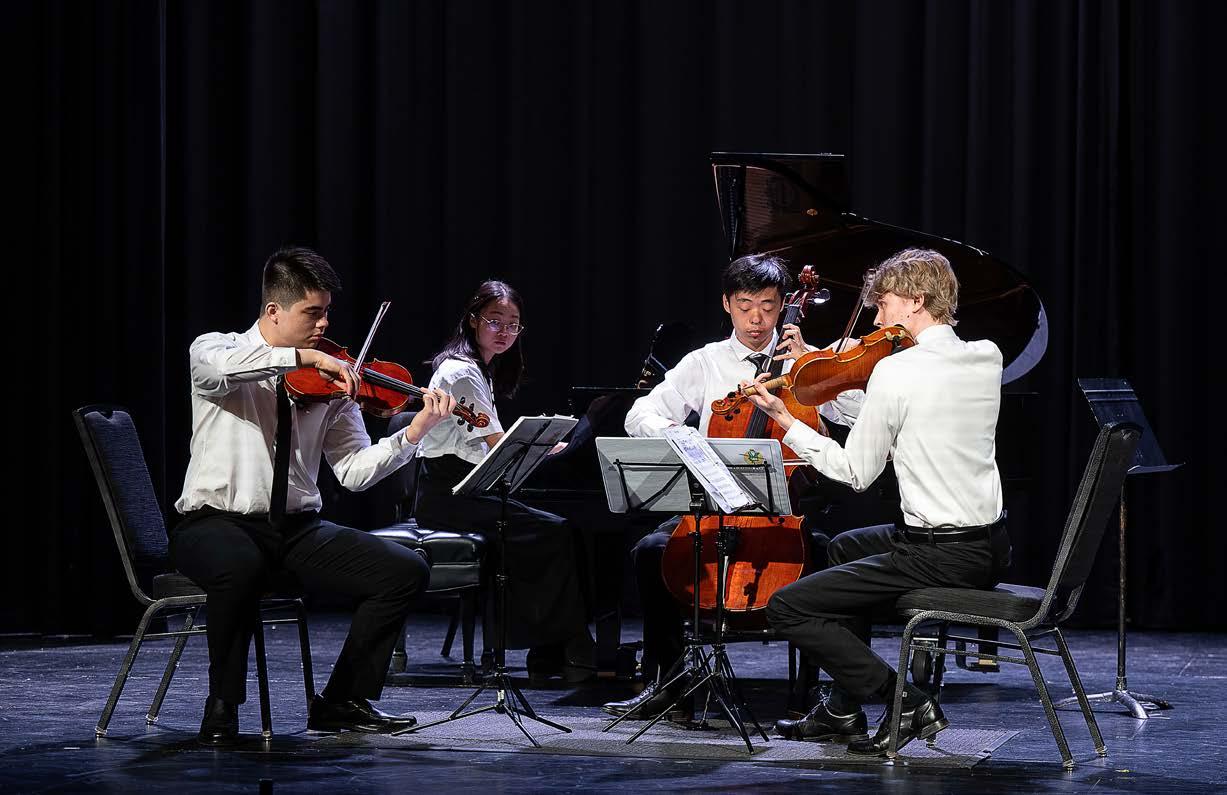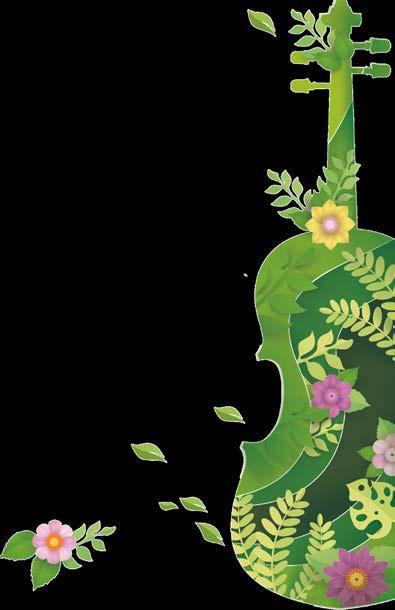
3 minute read
REVIVAL
How one Georgia parent, two continents, Sibelius’ granddaughter, and modern technology brought a neglected work back into the spotlight
By Ching-Ching Yap and Ginny Fairchild
In the classical music world, the great composers’ works are catalogued, copyrighted, studied, debated, and generally analyzed down to the last blot of ink on the page. Sometimes, however, a manuscript falls by the wayside— gets pushed to the back of a drawer or lost in a box during a move. Or, perhaps, circumstances and timing allow a great work to simply fade from memory. This is the story of how one such abandoned work is receiving its revival right here in Georgia…
Since elementary school, my children have been playing together in a string quartet. In 2022, when my oldest, a violist, left for UGA, my son invited a pianist to join the ensemble. Named the Varro Quartet, it is a rather unique ensemble of two violins, cello, and piano. While searching online for music available to this configuration of players, we stumbled upon a recording--the only recording—of a piano quartet, JS 157, written by Jean Sibelius. The sheet music, however, was nowhere to be found.
After coming up empty-handed in my internet searches, I reached out to the website SibeliusOne.com, a non-profit organization formed to advance, improve, develop and maintain public education in appreciation of the life and work of Jean Sibelius. Within a few hours, I received a response from Andrew, their General Manager, who informed me I must request written consent from Sibelius’ granddaughter, Aino Porra, as she handles all matters of permission for the estate. Once consent was given, he said, I could then order photocopies of the manuscript from the National Library of Finland.
Sibelius’ granddaughter--how intriguing! I contacted her and she very willingly granted me permission to request sheet music. So now it was on to the National Library of Finland and Petri Tuovinen, their Information Specialist.


Petri kindly explained that their library has the manuscript but no mechanism to receive international payment except through the interlibrary loan process. I contacted my local library but was informed they do not have the ability to request international interlibrary loans. Still undeterred, I contacted a friend, who requested the manuscript through her university library system. After a long waiting period, I tried Petri again to see if the National Library of Finland had received the university loan request. They had not. At this point I decided to throw in the towel.
The very next day, however, I received a surprise email from Petri containing a PDF of the manuscript and a note explaining how my persistence in this matter had moved her to scan and send the manuscript directly to me, at a cost of about $45. I was thrilled and immediately printed out the three attached files. To date, I have not received an invoice from the National Library of Finland.
The handwritten manuscript contained in these PDFs was very clean, but the notation was small and extremely difficult to read. The first document contained all four movements; the second only fragments of music; and the third had a complete music passage with handwritten notes indicating it should be inserted into one of the movements. With renewed determination, I prepared to manually enter the music into Finale myself, using the one available recording as reference. After a few tedious tries, it occurred to me that the very musicians whose recording I was referencing must, in fact, have used some version of sheet music.
So, again I found myself back on the internet to track down the four quartet members. The first violinist, Jaakko Kuusisto, passed away in February 2022. The second violinist, Satu Vänskä, plays with the Australian Chamber Orchestra in Sydney. The cellist, Taneli Turunen, lives in Berlin. The pianist Folke Grasbeck is still in Finland, and to my relief his contact information was readily available. After waiting a week for Grasbeck to return from the vacation (apparently, the Finns like to enjoy the summer countryside without computers), he finally replied with a digital copy of the whole piece, the version they used for their 2005 recording. Success! The Varro Quartet could now play the piece!
In my follow-up communications with Grasbeck, I learned that he is currently the president of Sibelius One. They were all extremely excited that the Varro Quartet was planning to learn and perform JS 157, because it would be the American premier. Yes, that’s right…the first time it will have every been played stateside! Four high school students from Georgia will have the incredibly special honor of premiering a work by the great Jean Sibelius!
So we finally come to today, when the Varro Quartet is putting the final touches on JS 157 before it’s official American pre



